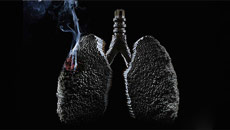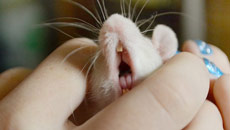In a major breakthrough, researchers have developed a technique that allows ultrasound to penetrate bones and metals.
Materials like bones and metals, called aberrating layers, have physical characteristics that block or distort ultrasound's acoustic waves.
"We have designed complementary metamaterials that will make it easier for medical professionals to use ultrasound for diagnostic or therapeutic applications, such as monitoring blood flow in the brain or to treat brain tumors," said lead author Tarry Chen Shen from North Carolina State University.
"These metamaterials could also be used in industrial settings," pointed out Yun Jing, assistant professor of mechanical and aerospace engineering at North Carolina State University.
The new technique will allow us to use ultrasound to detect cracks in airplane wings under the wing's metal "skin", noted Yun Jing.
Ultrasound imaging works by emitting high frequency acoustic waves.
When those waves bounce off an object, they return to the ultrasound equipment, which translates the waves into an image.
The team has designed customised metamaterial structures that take into account the acoustic properties of the aberrating layer and offsetting them.
The metamaterial structure uses a series of membranes and small tubes to achieve the desired acoustic characteristics.
The researchers have tested the technique using computer simulations and are in the process of developing and testing a physical prototype.
The technique can be used for ultrasound imaging, as well as therapeutically like using ultrasound to apply energy to brain tumors, in order to burn them.
The study appeared in the journal Physical Review X.





